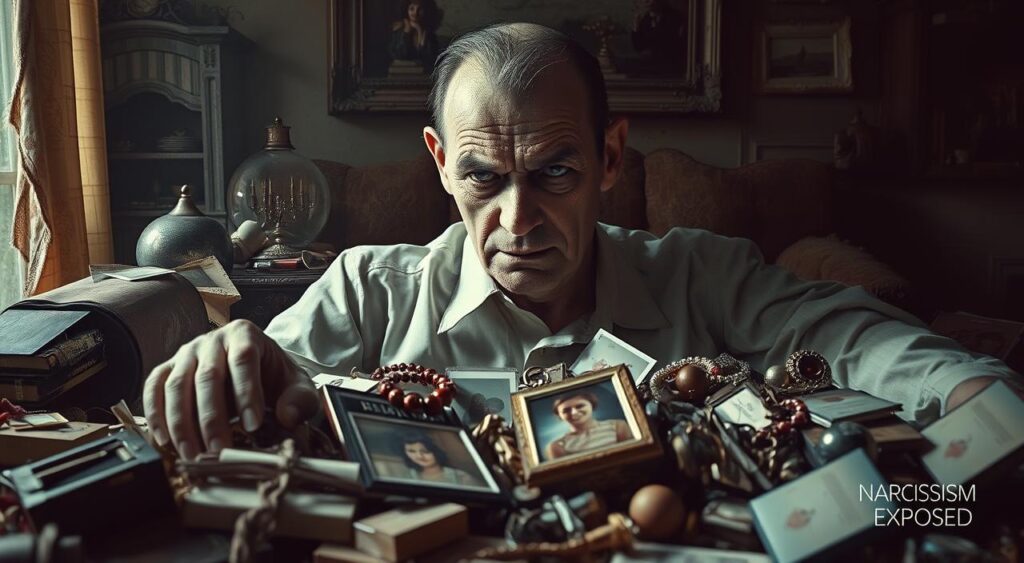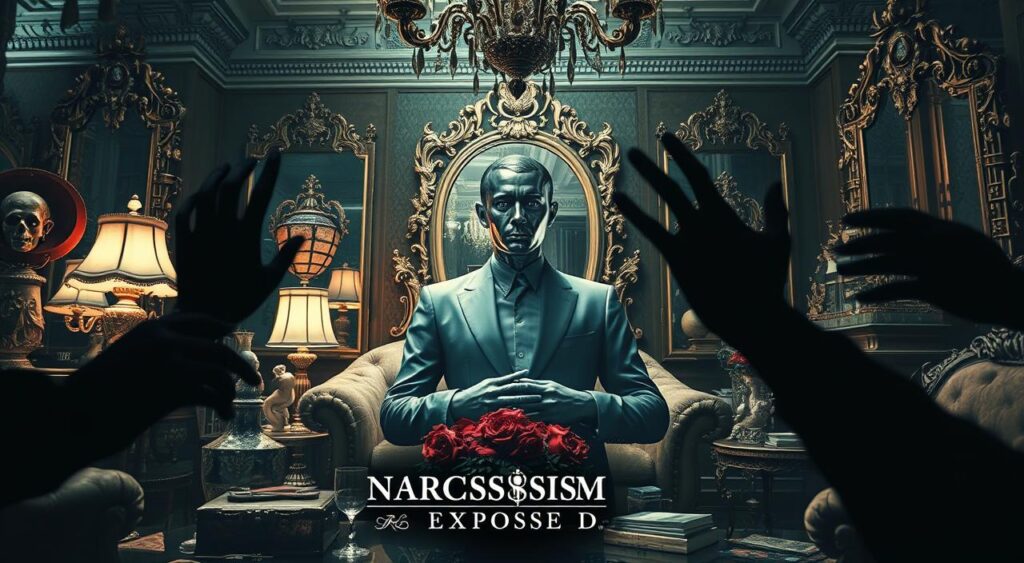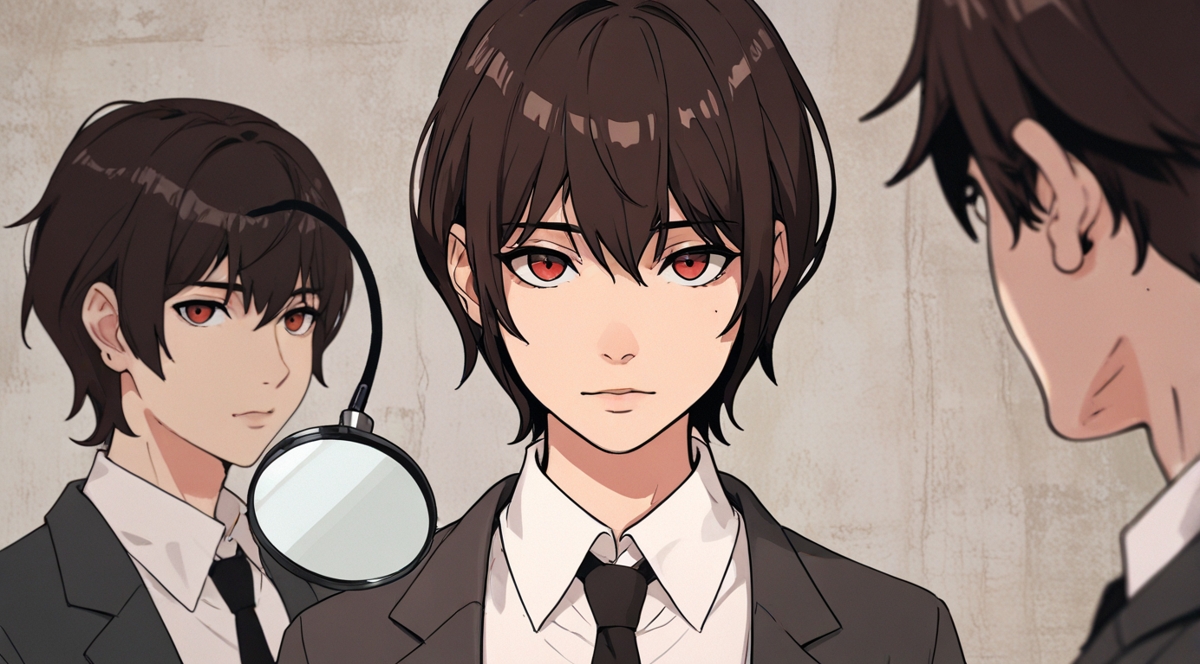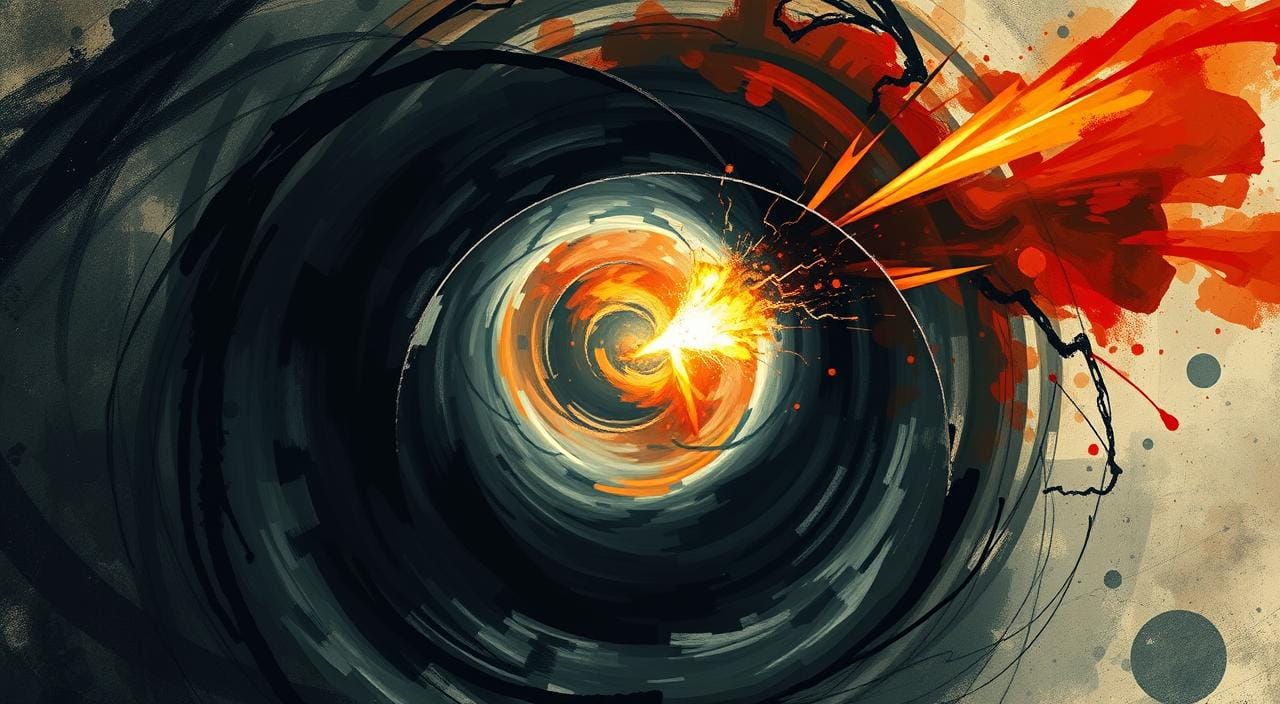I often think about the strong need to own things that narcissists have. They really cling to their stuff and love to show off expensive items. This article looks into why they act this way, showing what drives their need to own so much. Let’s discuss are narcissists possessive over items?
Narcissists see their stuff as part of who they are. It shows off their big ego and need for praise. They want to control and keep power over their things because they feel insecure and don’t like themselves very much1. Especially vulnerable narcissists can’t really connect with others well. So, they hold onto their things tightly as a way to feel important and in charge1.
Key Takeaways
- Narcissists often have an intense attachment to their material possessions, seeing them as extensions of their own identity.
- Their possessiveness over items is rooted in a deep-seated insecurity, a fragile self-esteem, and a need for validation and control.
- Vulnerable narcissists, in particular, may use their belongings to compensate for a lack of meaningful connections with others.
- Narcissists’ possessiveness can manifest in hoarding behavior, flaunting of status symbols, and a reluctance to share or part with their possessions.
- Understanding the psychological drivers behind a narcissist’s possessive nature can provide valuable insights into their behavior and the dynamics of narcissistic relationships.
The Accumulator: A Narcissist’s Obsession with Possessions
Narcissists deeply connect with their stuff, seeing it as part of who they are. They see their things as key to their narcissistic supply2. They protect their items, like furniture and cars, because they show off their status and past wins2. They love to show off these items to get praise and attention.
Narcissists and Their Attachment to Objects
For narcissists, their stuff means a lot. It shows they’re successful, better than others, and have a good social standing2. They collect and show off status symbols to look rich, powerful, and wanted2. Having lots of things helps them feel in charge and secure.
The Significance of Material Possessions for Narcissists
Narcissists always want to be admired and validated. Their stuff helps them get attention and look good to others3. The more they have and show off, the more they feel good about themselves and their place in the world.
Their love for things shows their deep emotional issues. They hold onto material goods to hide their true feelings of insecurity and low self-esteem3. Knowing this helps us understand narcissists better and see why they value their possessions so much.
Narcissistic Supply and Status Symbols
Narcissists always need admiration and validation, known as narcissistic supply. They use luxury goods and status symbols to get this need met. By showing off their wealth, achievements, and social connections, narcissists try to impress others. This gives them a sense of4.
They often get a lot of admiration and envy for their fancy possessions and lifestyle. They might show off their wealth by buying luxury items4. This materialism and focus on status symbols helps them feel better about themselves and look superior.
Narcissists also treat people as objects to boost their own status. They see their romantic partners, friends, or colleagues as things to show off and control, not as people with their own needs5. This shows they don’t care about others’ feelings or value.
In the end, the need for narcissistic supply and status symbols drives narcissistic behavior. Understanding this helps us deal with people who have narcissistic personality disorder456.
The Discarder: Narcissists’ Detachment from Mementos
Unlike the accumulator narcissist, there’s another type called the “discarder” narcissist. These narcissists don’t really connect with their stuff, especially things that hold memories. They don’t get emotionally tied to because they’re scared of getting hurt if something gets lost or taken away. By letting go of their things, discarder narcissists keep control and seem not to care about material goods. They see this as showing they’re special and better than others.7
Avoiding Emotional Attachments to Objects
Discarder narcissists don’t really care about their stuff, including things that hold memories. They avoid getting close to objects because they don’t want to feel vulnerable. They’re scared of getting hurt if something gets lost or taken away. Not caring about stuff shows they think they’re unique and better than others7.
“Narcissists manipulate victims into believing that they are solely responsible for the issues in the relationship.”
By getting rid of their things, discarder narcissists feel in control and don’t get emotionally tied to their stuff. This shows they’re scared of getting hurt and want to avoid any loss.7
The way discarder narcissists don’t care about mementos shows they don’t value material goods. This helps them keep up the idea they’re in control and better than others. They think they’re not stuck by emotions like others are with their things.7
Narcissistic Handles: Collecting Trophies and Proofs
Narcissists love to gather “narcissistic handles” – items that show off their past wins, skills, or smarts8. These things become very special to them, seen as symbols of their greatness8. They use a special method called “narcissistic branding” to make these items part of who they think they are8.
Narcissistic Branding and Fetishization of Objects
Collecting keepsakes helps narcissists feel better about themselves and keeps their sense of entitlement alive8. These items let them remember their past successes and feel superior to others8. By loving these objects, narcissists feel in control and happy, getting emotional boosts from them8.
Narcissists use these items to show off their identity and look rich, successful, and well-connected8. This helps them see themselves better and draws others to admire them, giving them the attention they crave8.
“The narcissist’s attachment to their possessions is a testament to their inability to form genuine emotional connections with people. These objects become a substitute for the intimacy and validation they crave, but can never truly attain.”
They love objects and collecting them because it shows they’re in charge, big, and entitled8. This shows how they see the world differently and how they’re out of touch with others’ feelings8.
Are Narcissists Possessive Over Items? Narcissistic Traits and Behaviors
Narcissists have a strong need to own things because of their deep personality traits9. They see their stuff as part of who they are. This shows their sense of entitlement, need for control, and lack of empathy10. Narcissists believe their things help them keep their power and status10.
They use tricks like triangulation and devaluation to show they own people and things. They also want more stuff to make themselves feel better9. This comes from wanting control and fearing losing their identity10.
- Narcissists act very possessive with their things, seeing them as part of themselves.
- They use tricks like triangulation and devaluation to show they own people and things.
- Narcissists always want more stuff to boost their low self-esteem and keep their power and status9.
“The possessive narcissist’s need to dominate every aspect of life points to a desire for power rather than love.”9
The way narcissists act shows their deep-seated fears and their constant need for control. By understanding these narcissistic traits, we can handle people with narcissistic traits better910.
Objectifying People: Narcissists’ Lack of Empathy
Narcissists see people as objects, not as individuals. This comes from their lack of empathy, not being able to feel or understand others’ feelings11.
In their relationships, narcissists first idealize people, then devalue them. They put someone on a pedestal, then drop them when they’re no longer needed. This keeps the narcissist in control, ignoring their partners’ feelings and rights11.
Idealization and Devaluation in Narcissistic Relationships
Narcissists use idealization and devaluation to control people. Those close to a narcissist start as idealized, but can quickly become devalued11. This sudden change shows how unstable these relationships are11.
Narcissists find it easy to sympathize with strangers, which helps their image. But they don’t show the same empathy to those close to them, showing they can’t form real connections11.
“Narcissists have an inflated sense of self-importance and a deep need for admiration, leading them to view others as objects to be manipulated for their own benefit.”
Narcissists see people as objects to control and use. They don’t care about others’ feelings or freedom11. This is a key trait of narcissistic personality disorder12.
Knowing how narcissists work in relationships helps us understand their actions11. By recognizing their idealization, devaluation, and manipulation, we can protect ourselves from their harm1112.
Triangulation: Narcissists’ Control and Manipulation Tactics
Narcissists often use triangulation to keep control and manipulate their relationships. This means they put one person against another. This way, the narcissist stays in charge. By making people fight each other, narcissists stop their targets from forming close bonds outside their control13. This tactic helps the narcissist stay on top, avoid blame, and keep their relationships in a state of chaos and uncertainty.
Narcissists might use emotional tricks, gaslighting, or sabotage to set up triangles. About 70-80% of covert narcissists use sabotage to harm their victims13. This can include ruining health, finances, or confidence. They might also make kids doubt the victim’s character or sanity13, or try to break the victim’s trust in leaders13.
Triangulation helps narcissists keep their victims trapped and unable to get help or leave the toxic relationship. Vulnerable narcissists might be more likely to be abusive when they feel threatened or challenged14. It’s important to understand these tactics to protect oneself from narcissistic abuse.
“Narcissists often use a tactic called ‘triangulation’ to maintain control and manipulate their relationships. This involves aligning one person against another, creating a power dynamic where the narcissist remains in control.”
A Sense of Ownership: Narcissists’ Possessiveness Over People
Narcissists don’t just claim ownership of things; they see people as part of them, needing their control15. They think their partners and others should follow their rules without question. This leads to feeling isolated and dependent15.
This need to own people shows up in many ways. They might be jealous, control who their partner talks to, or be violent if they feel threatened15. The more time someone spends with a narcissist, the more they see them as their own, deepening the abuse15.
Narcissists feel they deserve special treatment and need validation from others16. They see their partners, especially women, as things for their pleasure, ignoring their feelings and freedom16.
Isolation and Dependency in Narcissistic Relationships
Narcissists want to control and isolate their partners, stopping them from making new friends15. This, along with emotional tricks, makes people feel trapped and unable to leave15.
Getting over the harm from a narcissistic relationship is key, and help is out there15. Knowing how narcissists act and their effects can help people get back their freedom and health15.
“Narcissists often view women in a dualistic manner, either as saints or whores, making it difficult to engage in meaningful intimacy with significant others.”16
Narcissists see people, especially in love, as theirs, making real connections hard16. Understanding this and getting support can help people escape the narcissist’s grip and build better relationships16.
The idea of narcissistic supply links to their need for constant praise and attention from others15. This endless need for supply makes their controlling and possessive actions worse in relationships15.
In short, narcissists believe they own their partners, which is a big part of who they are17. Knowing about this and its effects is key for those dealing with narcissists and those trying to help them17.
Conclusion: Understanding Narcissists’ Possessive Nature
Narcissists show a deep need to control and own things and people because of their traits like entitlement and lack of empathy18. About 1% of people have Narcissistic Personality Disorder, but many don’t admit it or get help18. Knowing why narcissists act this way helps us deal with them and set clear boundaries.
Spotting the signs of narcissistic possessiveness helps us grow and understand ourselves better19. These individuals constantly try to boost their ego and feel superior, all to protect their fragile self-image19. We can learn to protect our feelings and set strong boundaries, avoiding the toxic cycle of idealization and devaluation.
It’s key to understand what drives a narcissist’s need to control to avoid emotional abuse and grow personally18. Though treating Narcissistic Personality Disorder is hard, knowing how to deal with these traits helps us stay safe and move towards a better life.
FAQ
What are the key characteristics of a narcissist’s possessive behavior over their material possessions?
How do narcissists use material possessions to obtain narcissistic supply?
What is the “discarder” type of narcissist and how do they relate to their possessions?
How do narcissists use “narcissistic handles” to bolster their grandiose self-image?
How do narcissists’ possessive tendencies extend to the people in their lives?
How does the narcissist’s tactic of triangulation contribute to their desire for control and manipulation in relationships?
Source Links
- 12 Signs of a Vulnerable Narcissist – https://www.verywellmind.com/signs-of-a-vulnerable-narcissist-7369901
- The Narcissist on Instagram: Epigrams and Observations – First Book 1983208175, 8023833847 – DOKUMEN.PUB – https://dokumen.pub/the-narcissist-on-instagram-epigrams-and-observations-first-book-1983208175-8023833847.html
- Full text of “Narcissism Book of Quotes” – https://archive.org/stream/NarcissismBookOfQuotes_880/NPDQuotes_djvu.txt
- One Simple, Overlooked Behavior That Outs a Narcissist – https://medium.com/@SPClusterB/one-simple-overlooked-behavior-that-outs-a-narcissist-46946afa0d89
- Narcissism and the Hero and Victim Complex – https://www.psychologytoday.com/us/blog/peaceful-parenting/202102/narcissism-and-the-hero-and-victim-complex
- How to spot a narcissist: Love bombing and the pedestal phase – https://terezashealthblog.wordpress.com/2017/11/24/how-to-spot-a-narcissist-love-bombing-and-the-pedestal-phase/
- Discarded by a Narcissist: The Other Woman – https://kimsaeed.com/2014/01/21/after-the-discard-the-other-woman/
- Inanimate Objects as Sources of Narcissistic Supply – https://vaknin-talks.com/transcripts/Inanimate_Objects_as_Sources_of_Narcissistic_Supply/
- 15 Signs of a Possessive Narcissist: Identify and Conquer – https://personalitydiaries.com/signs-of-a-possessive-narcissist/
- 13 Signs You’re Dating a “Narcissist” — Talkspace – https://www.talkspace.com/mental-health/conditions/narcissistic-personality-disorder/relationships-dating/
- Understand a Narcissist From an Object Relations Perspective – https://www.psychologytoday.com/intl/blog/peaceful-parenting/202203/understand-narcissist-object-relations-perspective
- All You Need to Know Being in a Relationship with a Narcissist – https://medium.com/@sintija.bernava/all-you-need-to-know-being-in-a-relationship-with-a-narcissist-ba2d738b9922
- Are You Being Sabotaged? 10 Common Ways A Covert Narcissist May Sabotage You – Esther Company – https://esther-company.com/are-you-being-sabotaged-10-common-ways-a-covert-narcissist-may-sabotage-you/
- The Shocking Truth: Vulnerable Narcissists Outrank Overt Narcissists as More Abusive! – https://sherileturnermyles.medium.com/the-shocking-truth-vulnerable-narcissists-outrank-overt-narcissists-as-more-abusive-e96422ad681e
- The Insanely Jealous Narcissist – https://kimsaeed.com/2015/11/16/the-insanely-jealous-narcissist/
- Narcissists and Women | HealthyPlace – https://www.healthyplace.com/personality-disorders/malignant-self-love/narcissists-and-women
- Possessiveness vs Borderline – https://bpdfamily.com/message_board/index.php?topic=239284.0
- Narcissism:The Ultimate Guide MPAmind.com – https://www.mpamind.com/the-ultimate-guide-to-narcissism/
- What Makes Some Narcissists Mean, Competitive, and Jealous – https://www.psychologytoday.com/us/blog/insight-is-2020/201807/what-makes-some-narcissists-mean-competitive-and-jealous











